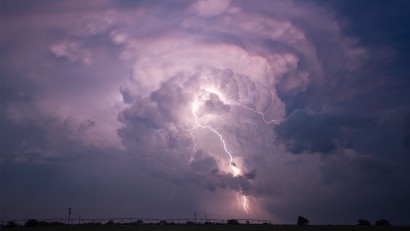- 1. What Is Boondocking?
- 2. Prepping For Boondocking With an RV
- 2.1. Stock up on essential supplies
- 2.2. Pack or pick up a paper map
- 2.3. Check your power supplies
- 2.4. Fill fresh water tanks & empty waste-water tanks
- 3. Important Tips When Boondocking With an RV
- 3.1. Conserve fresh water
- 3.2. Keep an eye on waste-water tanks
- 3.3. Don’t dump your tanks where you camp
- 3.4. Abide by the length-of-stay limits
- 3.5. Leave no trace
- 4. 4 Ways To Take A Shower When Dry Camping With An RV
- 4.1. Take a shower Navy-style
- 4.2. Capture shower water in a plastic bin
- 4.3. Shower outside
- 4.4. Shower at a 24-hour gym
- 5. How Do You Get Power While Boondocking?
- 6. How Do You Find A Boondocking Location?
- 7. So, Are You Ready For The Boonies?
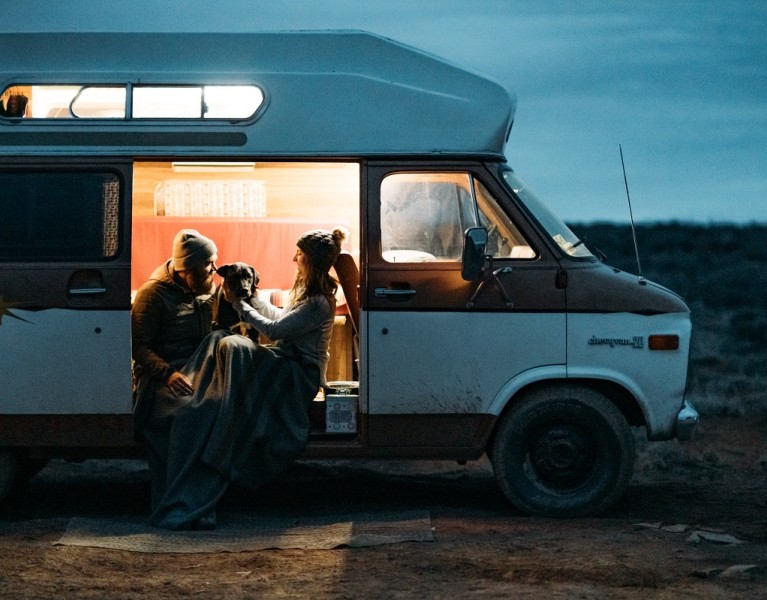
Discovering True Freedom: Boondocking with an RV
Table of Contents [Show]
If you’re looking for the ability to unwind and truly disconnect from the world, boondocking is one of the most adventurous ways to explore the country while saving money. So, just what is boondocking and how can you make the most (with the least resources available) of your boondocking experience?
What Is Boondocking?
Boondocking provides the opportunity to RV camp off-the-grid, far from services or amenities that are usually found in RV parks or developed campgrounds. Boondocking is a cheaper, quieter, and simpler (in most respects) way of camping. It's generally free, but there are some areas where a permit is required.
When you boondock, you will not be connected to water, electricity, or sewer, which is why it’s sometimes called dry camping or wild camping. There are no bathrooms, picnic tables or other amenities. Boondocking consists of just you, your RV, and a remote spot. Even though boondocking can land you in some of the most beautiful areas with relaxing views, it can also be a little daunting or intimidating the first time.
Prepping For Boondocking With an RV
Boondocking requires you to camp with no amenities, so you will need more planning and more resources in order to do it safely and successfully. Remember, when you go boondocking with your RV, there are no electric hookups, no dump stations, no trash services and no freshwater fill areas. But boondocking reaps its own rewards:
- Free camping
- Secluded areas
- More scenic views
- Undisturbed nature
- Quieter locations
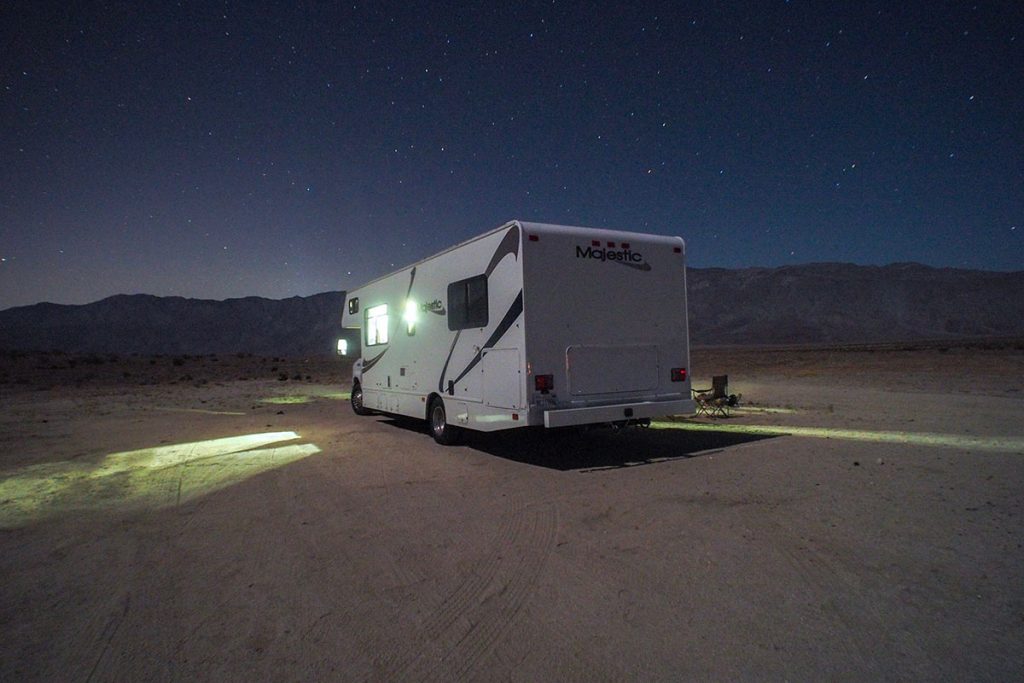
Proper planning is key before a boondocking adventure. Prior to leaving the grid, here's a list of the most important things to remember.
Stock up on essential supplies
This may seem obvious, especially for any camping trip, but some boondocking spots are far from civilization (e.g., stores and gas stations). Take enough groceries, toiletries, flashlights, batteries, and basic safety and repair equipment on hand for the duration of your experience.
Pack or pick up a paper map
Yes, a paper map! In areas with no cell service, Google Maps isn't an option. You can find inexpensive maps at most gas stations, or stop at a National Forest Service office or ranger station for a free map of the area. Plus, they can give you tips on camping and hiking sites nearby.
Check your power supplies
All RVs have either one or two house batteries to power lights, the water pump, and other 12-volt appliances. Remember to regularly maintain these batteries. When it comes to boondocking, the more battery capacity you have, the more power you can store. Also, make sure propane tanks are full and free of damage. If you have a generator or solar panels, check to make sure that everything is in working order.
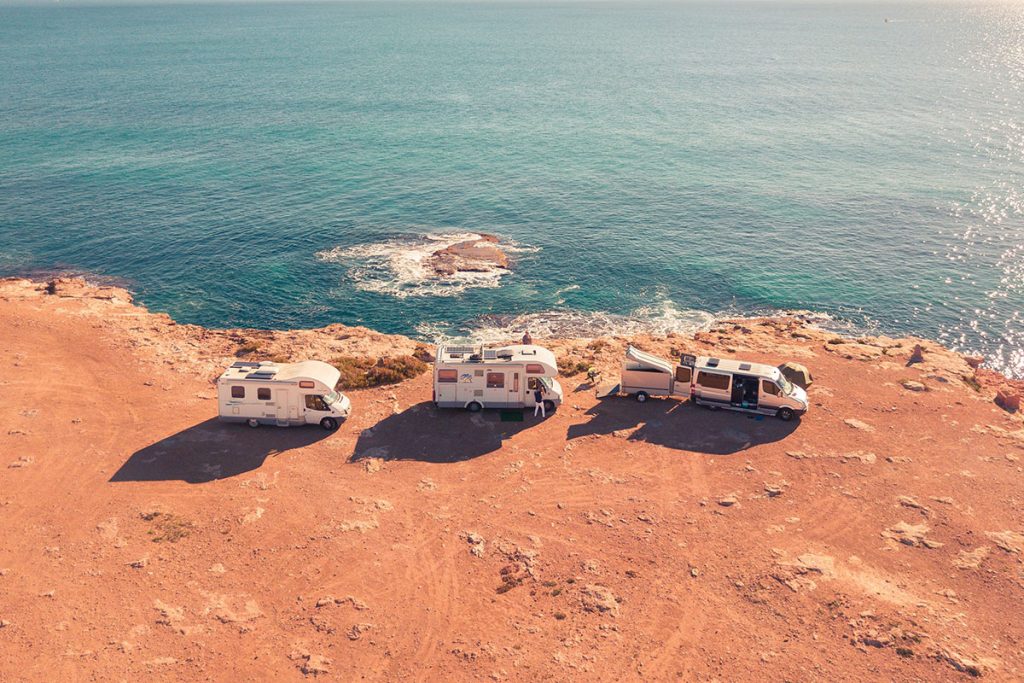
Fill fresh water tanks & empty waste-water tanks
Having plenty of water is especially critical when camping in the boonies. Consider keeping extra jugs of fresh water on hand. Make sure your black and gray water tanks are emptied and ready for the trip.
Important Tips When Boondocking With an RV
Camping off-the-grid with an RV in remote areas requires you to pay more attention to fresh water and dumping waste, as well as minimizing the impact on the environment. Here are five important tips to save you from trouble when you're boondocking.
Conserve fresh water
While boondocking, it will be unlikely that you will find a place to refill your fresh water tank. To conserve water consider:
- Taking fewer or no showers
- Not filling the sink completely to wash dishes
- Installing low-flow RV toilet, faucets, and water-saving showerhead
Keep an eye on waste-water tanks
By conserving fresh water and minimizing the amount of water used for everyday tasks, you'll lower the chances of your gray and black water tanks filling up too quickly.
Don’t dump your tanks where you camp
While boondocking, plan on being completely self-sustainable. Waste-water tanks should last the duration of your trip, so they don't have to be emptied until you return to civilization. If you need to dump tanks, plan ahead and locate a sanitary dumping station close to your destination. Many public lands, gas stations and truck stops allow you to pay a fee to dump into their sewage.
Abide by the length-of-stay limits
While most boondocking sites are free of charge, they are not free from time limits. If you plan on staying in one place for a long period of time, you need to check on the restrictions for your specific area. Most often, there is a 14-day stay limit.
Leave no trace
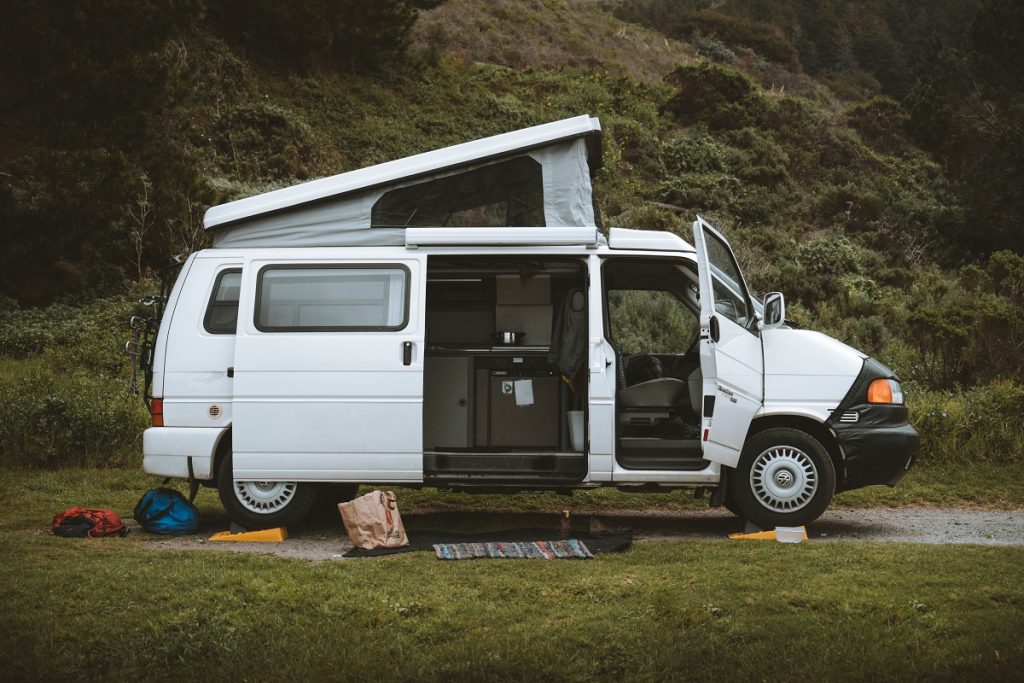
One of the most important things to remember when boondocking is to leave no trace. This means proper waste disposal; taking everything you brought with you and leaving everything you found behind; respecting wildlife; sticking to existing roads; and preventing fires from spreading.
4 Ways To Take A Shower When Dry Camping With An RV
When boondocking, you often keep your RV camped for as many days as possible in the same area. Conserving water, then, becomes an important issue. If your gray tank fills up too soon, you'll be forced to vacate the campsite and find a place to safely dump. When it comes to conserving water, showering while boondocking can become somewhat of an art form. While out in the middle of nowhere, there really isn't a need to shower daily (especially if you're alone!). If you do feel the need to shower while boondocking, here are some ideas to help you conserve water.
Take a shower Navy-style
Turn on the water long enough to get your body and hair wet. Then turn it off. Shampoo your hair, and soap your body. Turn the water back, on and rinse as quickly as possible. Turn off the water.
Capture shower water in a plastic bin
In order to limit water from filling up the gray tank, fill a plastic tub instead. Captured water can be used for flushing your toilet.
Shower outside
Fill up a few 1-gallon jugs with warm water for the makings of an outdoor shower. Stand in a large plastic bin or on a plastic mat, and douse yourself with one jug. Wash, and then rinse off with the remaining jugs.
Shower at a 24-hour gym
This is a common practice with serious boondockers. Gym memberships to national chains are relatively inexpensive, and they provide access to showers and bathrooms any time of the day. Plus, you don’t waste any of your own water.
How Do You Get Power While Boondocking?
Let’s face it, you don’t need electricity while boondocking. But, as a society, we love our power, and it does make life more comfortable. When boondocking in your RV, you must bring the power with you or be able to create more (especially if you are camping for an extended period of time). Here are some choices to make when it comes to having enough power during your trip:
- Make sure RV battery bank is fully powered.
- Add an inverter/charger to charge the battery bank and power electronics.
- Bring a portable generator.
- Invest in solar panels for true camping-off-the-grid power.
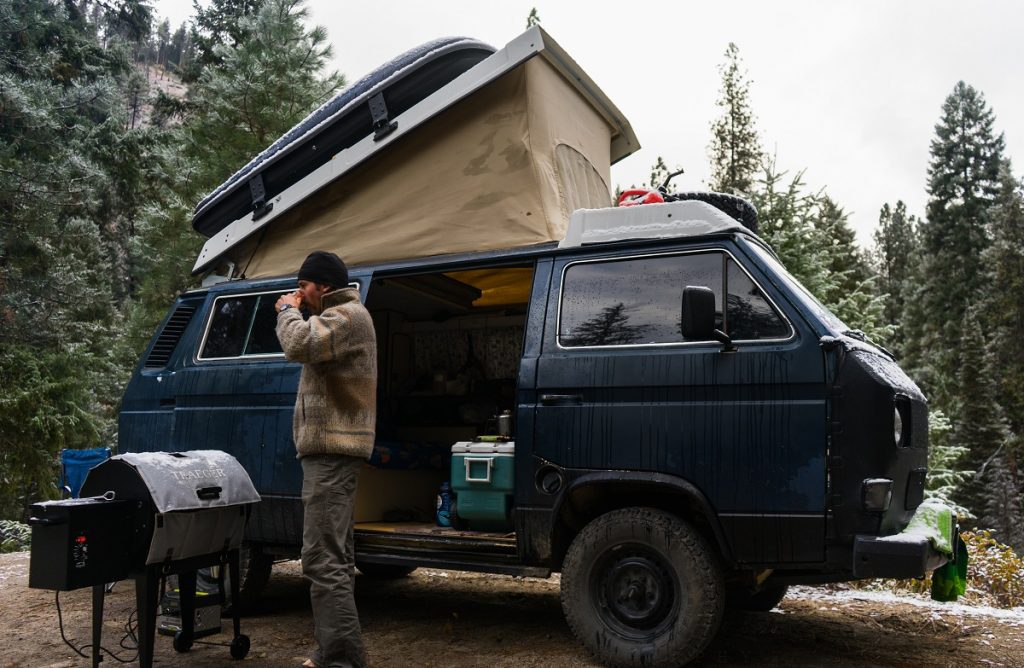
How Do You Find A Boondocking Location?
Whether you're looking for a secluded and scenic place to get away from the world for a while, or you need a free spot to stop and reboot while traveling the country, there are many different locations where you can legally stay overnight. Depending on your needs, there are different places to find safe boondocking locations.
- BLM-Managed Public Land: The Bureau of Land Management (BLM) offers what they call “dispersed camping” or boondocking on their publicly managed lands across the United States.
- National Forests: If you're visiting various National Parks, this is a great option. Just follow forest access roads to find areas where you can park and camp for free.
- Walmart Parking Lots: Park overnight for free and stock up on supplies! Check with specific locations about their boondocking policies.
- Truck Stops/Rest Areas: Most truck stops and rest areas allow RVs to stay overnight.
- Visitors Centers: Confirm with the specific location for the ability to stay overnight.
So, Are You Ready For The Boonies?
The ultimate RV adventure starts the moment when you choose to go off-the-grid. From the freedom of dry RV camping to the uncharted beauty of the land, boondocking is not only less expensive, but is also more secluded and scenic. A little preparation goes a long way when boondocking with your RV, and hopefully, the tips above will help get the most out of amenity-free camping. Don't forget to visit our online shop for the durable and versatile outdoor clothing you'll need in the wild. Just remember, the more you plan for living with less, the better your boondocking experience!


